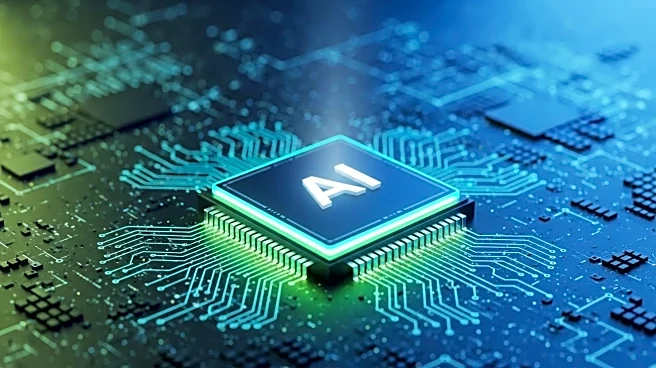What's Happening?
Root Access, a New York-based company, has developed an 'AI-native' tool designed to assist engineers working with embedded systems. The tool aims to simplify the modification of heavy machinery, robotics, and mission-critical hardware, reducing the time and effort required. The company, co-founded by Ryan Eppley and Samarpita Chowdhury, has recently secured $2.1 million in pre-seed funding. The tool, known as Hideout IDE, allows users to validate components and configure mission-critical hardware using AI, providing a proxy of trust for engineers. Root Access has already attracted interest from major companies like Mitsubishi, HP, Lockheed Martin, and John Deere, with over 100 engineers signing up for its open beta.
Why It's Important?
The development of Root Access's tool represents a significant advancement in the field of embedded systems engineering. By leveraging AI, the tool addresses a critical bottleneck in the technology stack, particularly in the firmware domain, which is often overlooked. This innovation could lead to faster and more efficient development of complex systems, such as autonomous vehicles and industrial machinery. The tool's ability to streamline the integration of various components could benefit industries reliant on rapid prototyping and deployment, potentially reducing costs and time-to-market. The funding and interest from major corporations underscore the tool's potential impact on the industry.
What's Next?
Root Access plans to continue developing its tool and expanding its user base. The company is hiring for key engineering roles to further enhance its capabilities. With strategic partnerships, such as the one with Altium, Root Access aims to integrate its tool more deeply into existing workflows. The company is also involved in several accelerator programs, which could provide additional resources and networking opportunities. As the tool gains traction, it may influence how embedded systems are developed and deployed across various sectors, potentially setting new standards for efficiency and innovation.
Beyond the Headlines
The introduction of AI into embedded systems engineering raises questions about the future role of engineers and the skills required in this evolving field. As AI tools become more prevalent, there may be a shift in the skill set needed, with a greater emphasis on understanding AI and machine learning principles. This could lead to changes in educational curricula and professional development programs. Additionally, the reliance on AI for mission-critical systems highlights the importance of ensuring the reliability and security of these tools, as any errors could have significant consequences.









